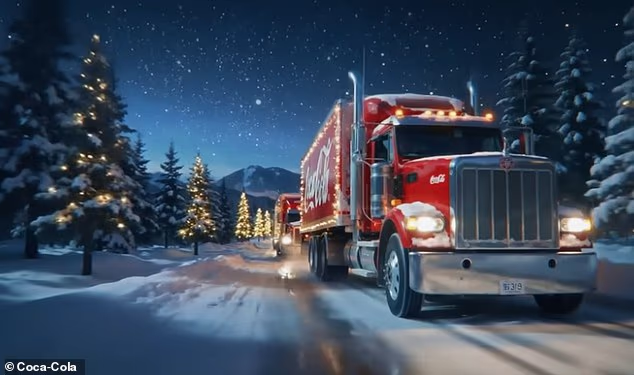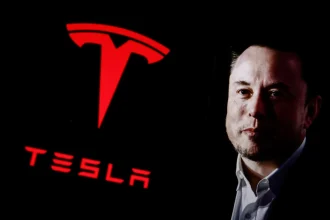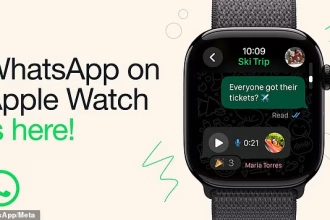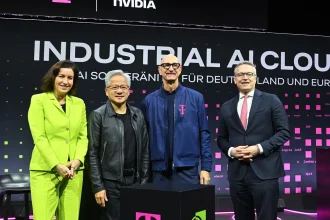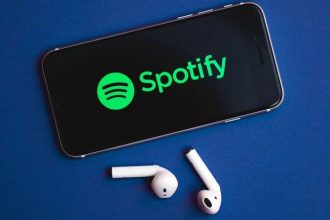Coca–Cola has been blasted online after confirming that it has used AI in its much–loved Christmas advert for the second year in a row.
The beverage giant joined forces with two AI studios for a pair of ‘refreshed takes’ on the ‘Holidays are Coming’ advert.
These adverts, it claims, ‘push the boundaries of technical precision, cinematic storytelling and production quality.’
Pratik Thakar, Global Vice President & Head of Generative AI, said: ‘AI is a superpower when it comes to execution and production, making what was previously impossible possible.’
Many viewers have been left unimpressed, with hundreds taking to the comments on Coca–Cola’s YouTube video.
‘A year of AI development later and it still looks terrible,’ one wrote.
Another said: ‘Remember when they paid real animators to make commercials with heart. Now it’s soulless AI.’
And one joked: ‘The best ad I’ve ever seen for Pepsi.’

Coca–Cola has been blasted online after confirming that it has used AI in its much–loved Christmas advert for the second year in a row.

Many viewers have been left unimpressed, with hundreds taking to the comments on Coca–Cola’s YouTube video
For many people around the world, Coca–Cola’s much–loved ‘Holidays are Coming’ advert marks the beginning of Christmas.
First aired in 1995, the ad shows the soft drink giant’s red delivery trucks emblazoned with lights making festive deliveries through a snowy landscape.
Ever since, variations of the promo have arrived in the weeks leading up to Christmas.
In 2024, Coca–Cola made its biggest change yet, after using AI to create the entire advert.
‘Last year we set a global milestone with the world’s first entirely GenAI–created film on broadcast media—a bold leap that broke new ground,’ Mr Thakar said.
At the time, the advert was widely berated, with viewers calling it ‘garbage’, ‘ugly’ and ‘too niche’, while branding the multi–billion–dollar corporation ‘lazy’.
Despite the backlash, Coca–Cola has turned to AI yet again, creating not just one, but two AI–generated adverts.
‘Leveraging advanced GenAI tools, we controlled every cinematic detail, from camera angles to physics–driven realism, with intuitive visual annotations mimicking a director’s workflow,’ Mr Thakar said.

The advert features the red delivery truck passing a range of animals through a snowy landscape before arriving into a town, and is set to Coca–Cola’s famous ‘Holidays are Coming’ song

While the music used in the film was performed and sung by real artists, many viewers have poked fun at the lyric ‘Tis the season it’s always the real thing’, given the advert itself was AI–generated

One user claimed that advert was ‘soulless’, and asked viewers if they remembered when Coca-Cola ‘paid real animators to make commercials with heart’
‘Most revolutionary is our seamless narrative continuity and character consistency, crafting immersive stories that resonate deeply.
‘This is more than filmmaking — it’s a transformational leap into the future of creativity and technology.’
The main advert features the red delivery truck passing a range of animals through a snowy landscape before arriving into a town, and is set to Coca–Cola’s famous ‘Holidays are Coming’ song.
While the music used in the film was performed and sung by real artists, many viewers have poked fun at the lyric ‘Tis the season it’s always the real thing’, given the advert itself was AI–generated.
‘”It’s always a real thing.” LOL,’ one user commented on YouTube.
Another said: ‘Calling anything about this real is hilarious.’
Others went to so far as to claim that the advert would push them to Coca–Cola’s rival, Pepsi.
One user wrote: ‘I guess Pepsi doesn’t taste so bad after all,’ while another suggested: ‘Can Pepsi please make an ad to roast Coca–Cola?’
This isn’t the first time Coca–Cola has turned to AI.
Back in May it joined forces with Adobe on ‘Project Fizzion’ – an AI–powered platform that accelerates branded content creation.
‘This year’s campaign is another proof point in our journey of emerging technology to rethink how we create and scale content,’ Mr Thakar added.
It remains unclear how much Coca–Cola spent on the AI–generated advert.
The Daily Mail has contacted the company for further comment.
From a cocaine-infused patent medicine to a modern health hazard: A brief history of Coca-Cola
Coca-Cola was created by a Confederal Colonel living in Georgia named John Pemberton.
After being injured in the Civil War, Pemberton became addicted to morphine, and sought a solution for his cravings.
In 1885, he introduced the first version of the now-famous beverage as Pemberton’s French Wine Coca, an alcoholic drink patented as a nerve tonic.
However, a year later in 1866, prohibition laws began to be enforced in Georgia – so Pemberton developed Coca-Cola, the non-alcoholic version of his wine.
When launched, Coca-Cola’s two key ingredients were cocaine derived from the coca leaf and the caffeine from kola nut, leading to the name.
This formula was made with syrup and carbonated water, and was thought to be able to cure ailments such as addiction, impotence, and indigestion.
Pemberton died in 1888 – the same year he sold the majority of his company to Asa Candler, an Atlanta businessman.
Candler is credited with the nationwide expansion of Coca-Cola, and he pioneered the company’s revolutionary bottling network.
In 1903, Coca-Cola switched from using fresh coca leaves to ‘spent’ coca leaves (what’s left over after the cocaine has been removed) – a practice thought to have continued until the 1920s.
As the brand continued to evolve, so did its wildly successful advertising practices – and more than 100 years later, Coca-Cola still sets the example for branding in the US and worldwide.
Today, Coca-Cola is still the undisputed king of the approximate $100 billion US soda industry.
But the excessively sugary flagship product – vastly different to Pemberton’s original creation – is thought to directly fuel heart disease, diabetes and more.


